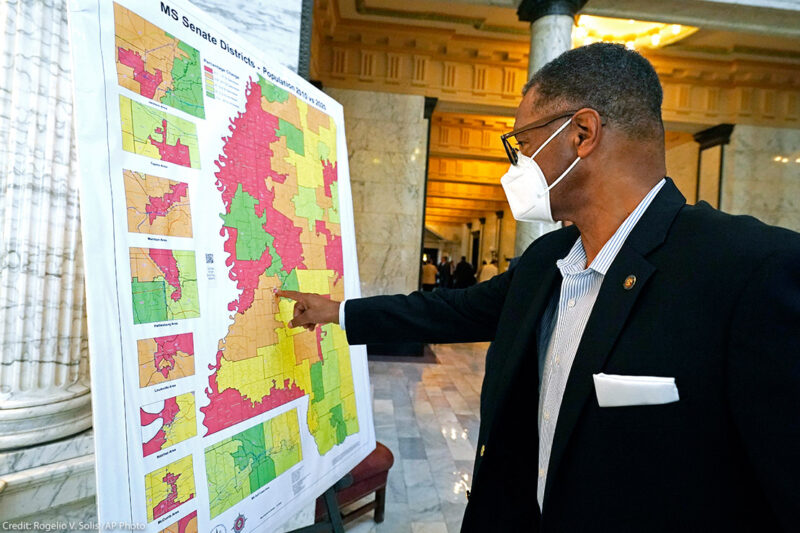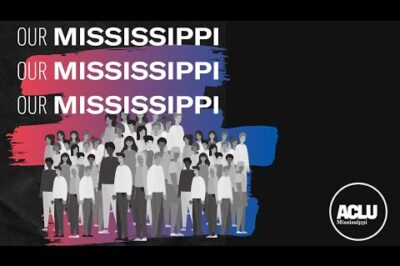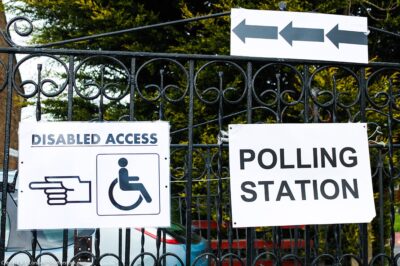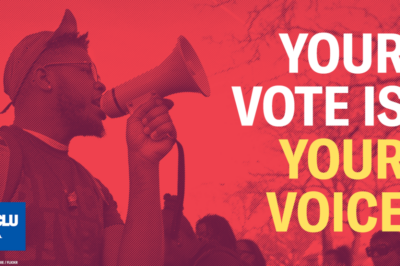Mississippi Voters Are Fighting for Fair Representation on the State’s Highest Court


Black voters in Mississippi deserve full and fair opportunities for representation at the highest level. And the next generation of Black lawyers and civic leaders deserve full and fair opportunities to serve at the highest level. That must include the opportunity to become a justice of the Mississippi Supreme Court. It’s far past time that the Supreme Court districts that Mississippi uses to elect its Supreme Court reflect the diversity of the state’s population, rather than diminishing the voice of Black voters. That’s why the ACLU and ACLU of Mississippi, along with our co-counsel, have filed a lawsuit in federal court on behalf of Black civic leaders challenging Mississippi’s Supreme Court districts.
Mississippi’s population is almost 40 percent Black — a greater proportion than any other state in the nation. Yet in the entire history of Mississippi, there have been a total of only four Black justices on the state’s nine-member Supreme Court. In fact, there has never been more than one Black justice on that court at any given time. The last time a Black justice was elected to the Mississippi Supreme Court in a contested election was in 2004, nearly 20 years ago. The reason for this gross inequality is that Mississippi employs Supreme Court district boundaries that dilute the voting strength of Black Mississippians in state Supreme Court elections. The challenged districts violate the Voting Rights Act and the U.S. Constitution. Mississippi must do better.
Section 2 of the Voting Rights Act makes it illegal for states to draw district lines that water down the voting strength of voters from minority racial groups. That is exactly what Mississippi’s Supreme Court election district lines do. Black voters comprise a majority of the population in certain regions of the state, such as the Mississippi Delta and the state capital of Jackson, but Black voters do not comprise a majority in any of the three Supreme Court districts as currently drawn.
Moreover, voting is heavily polarized on the basis of race across Mississippi. That high degree of polarization means that candidates chosen by Black voters are typically defeated by white bloc voting in the current Supreme Court districts. By splitting Black voters across the three Supreme Court districts in a way that doesn’t allow them to be the majority in any of those districts, the challenged scheme provides Black voters with little opportunity (and certainly not an equal opportunity) to elect candidates of choice to the state Supreme Court. That is classic vote dilution.
Additionally, Mississippi’s Supreme Court districts are unconstitutional. These districts have not been changed since 1987 — before some of the plaintiffs in our case were even born. Indeed, they are not very different from districts used by Mississippi in the 1930s and 1940s during the era of Jim Crow. Also, Mississippi does not appear to have ever precleared the districts (that is, obtained approval from the Department of Justice or a federal court) as it was required to do under the Voting Rights Act. It passed them even though Black lawmakers strongly objected. The state and its policymakers cannot help but see the discriminatory, vote dilutive effects of those districts. These and other unusual circumstances show that racial discrimination was and is a motivating factor in the state’s persistent maintenance of these vote dilutive districts. Such improper motivations violate the Constitution.
Thankfully, the remedy to these violations of law is simple: Draw new district lines for the first time since 1987. In fact, only modest changes to the district lines for the state’s Supreme Court districts would be sufficient to make Supreme Court District 1 majority-Black and to provide Black voters with the opportunity to elect candidates of their choice. This change would also keep the state’s overall districting scheme for Supreme Court elections intact, while also ensuring that those elections comply with federal law and allow Black Mississippians an opportunity to elect candidates of choice.
Black Mississippians should not have to participate in critical elections on a grossly uneven playing field. That is wrong and erodes the trust so many people have in our democracy and our public institutions. In contrast, fair representation and multi-racial democracy shore up the integrity of our institutions and benefit all Mississippians.
This case is about Mississippi’s future — about whether the next generation of Black lawyers and civic leaders in Mississippi will have fully equal opportunities to obtain representation and to serve at the highest level, including as a justice of the Mississippi Supreme Court. Mississippi should redraw its Supreme Court district lines now. Federal law requires nothing less.




